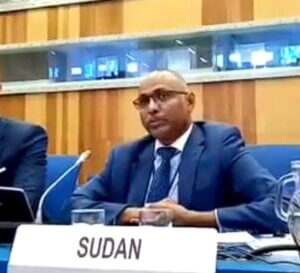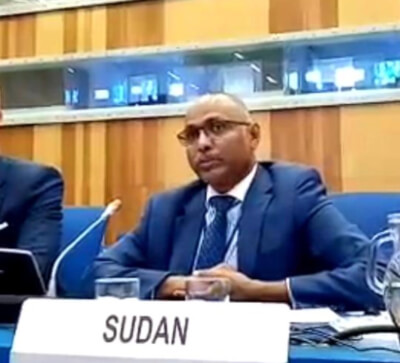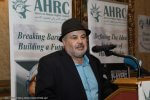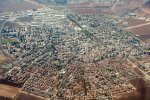Sudan’s Bumpy Road to Peace, Reconciliation, and Democracy
By Magdi A. Mofadal

Since the 15th of April 2023 Sudan has been passing through the gravest catastrophe in its modern history. It resulted from the failed coup attempt turned into rebellion staged by the Rapid Support Forces (RSF). It complicated an already very tense and fragile situation, as the country has been facing a host of humanitarian, economic, political, security and social crises before April,2023.
Given the unprecedented devastation, atrocities committed, casualties, human suffering, and polarization involved in this conflict, combined with the dynamic of the conflict itself, it is expected that post-April Sudan will be vastly different from the country that existed before. A new start is the only viable path to save the nation from its current tribulations.
Deep impacts of a long history of conflicts
As national, regional, and international efforts intensify to halt the violence, it becomes important to consider the broader context within Sudan. To fully grasp the complexity of the situation, one must reflect briefly on Sudan’s modern history, as the country has experienced almost constant internal conflicts since its independence in January 1956.

Prior to South Sudan’s secession in 2011, the civil war was concentrated there. However, conflicts emerged also in South Kordofan, Blue Nile, Eastern Sudan, and Darfur, leaving millions internally displaced or as refugees. These conflicts have far-reaching negative impacts on the country and pose a real threat to its national unity. Before April 2023, intercommunal violence had reached alarming levels in Kassala, Red Sea, West Darfur, and Blue Nile states, resulting in hundreds of civilian casualties and widespread destruction of property.
However, the SRF rebellion is a unique case, not only due to the type of weapons used, the number of troops involved, and foreign interference, but also because of the widespread and systematic abhorrent atrocities committed against civilians and civilian institutions by the rebels, that have been condemned by the international community. Moreover, rebellion has been concentrated in Khartoum, the capital city ,and paralyzed numerous state institutions for over three months, Banks, markets, universities, ministries, churches, factories, government facilities, schools, residential homes, water, and power stations have been destroyed, looted, or burned down. Hospitals and health facilities were looted and transformed into barracks. The rebels have perpetrated unimaginable large-scale atrocities against civilians, diplomatic missions, and humanitarian workers. Even museums and the nation’s collective memory in the National Archive and the Sudan Broadcasting Corporation have been systematically attacked and destroyed.
The imperative for a smart partnership with Sudan
In the face of this grim situation, the appreciated efforts of Sudan’s regional and international partners are more crucial now than ever in country’s history. A smart partnership with Sudan is urgently needed as the country strives to forge a new path towards peace, recovery, reconciliation, democracy, and development.
The first step in this arduous journey is for our partners to realize that this is a unique situation requiring creative thinking, new approaches, fresh ideas, and smart solutions. There are no quick fixes or easy solutions. All must break free from oversimplification traps. Attempting to sell old wine in new bottles would be disastrous.
Alongside silencing the guns, tremendous efforts are required in the humanitarian field. The needs of internally displaced persons and refugees from this catastrophe, and from previous conflicts, must be addressed.
A comprehensive robust recovery plan is essential to normalize life, reactivate institutions, resume service provisions, and enable all affected citizens to start rebuilding their lives. The levels of devastation in Khartoum State and Darfur region, the epicentre of the current catastrophe, are unimaginable.
The country’s dire economic situation must be considered. Substantial economic support is necessary in this respect. Sudan’s economy has been bleeding since 2011 when it lost 90% of the export earnings due to the secession of South Sudan. Political instability since 2018, the COVID 19 pandemic, the war in Ukraine and other factors further complicated the situation.
Prematurely leap frogging to a clumsy political process will be unwise and counterproductive. Confronting societal and political polarization, intercommunal violence, intolerance and hate speech is crucial for a healthy political process and a smooth transition to democracy. The conundrum opened deep wounds in the nation’s social fabric. Time is of essence in the road to peace, reconciliation, recovery, and democracy. It is one of the best healers.
The importance of gradually building confidence among the Sudanese stakeholders cannot be overestimated. More importantly, there is an urgent need for a comprehensive and inclusive national healing, reconciliation, and justice process to heal the deep wounds created by this conflict and those left from previous ones. This process must top the priorities of the transitional government. It may be suicidal to hurry for elections before treating these wounds.
In supporting the country’s new path, our partners need to be equidistant from all the Sudanese stakeholders. Impartiality and neutrality are fundamental to achieve the targeted results. In their relations with each other, they must remember that Sudan will not be able to withstand regional or international geopolitical competitions and rivalries. It has enough of deep wounds that need to be healed. Nevertheless, it can offer ample opportunities for investment in fields ranging from agriculture and agribusiness to infrastructure, manufacturing, services, tourism, and mining.
Therefore, it could be said that, with proper cooperation and coordination, this smart partnership can provide light at the end of the tunnel. It is hoped that all will join hands together to achieve this objective, and remember that real success is achieved when hopelessness and despair are at their highest levels.
(Magdi A. Mofadal is the ambassador of Sudan to Austria. Reach him by email at magdimofadal2011@gmail.com. The views expressed in this article are the sole responsibility of the writer.)


- The RSF mutiny’s resonance in Sudan: Understanding some of its impacts on regional and global dynamics - September 23, 2023
- Factors Stalling the Peace Process in Sudan - August 28, 2023
- Reviving the Bread-basket Strategy: The Backbone of Sudan’s Recovery - August 10, 2023
























Comment on “Sudan’s Bumpy Road to Peace, Reconciliation, and Democracy”